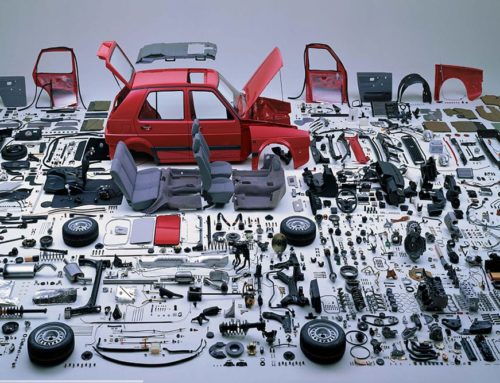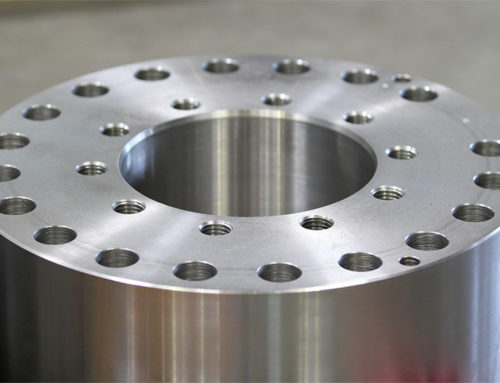‘Help, we’re out of control!’ That’s a call we hear on a regular basis from companies who realise that to become more profitable, more efficient and more competitive, they need to implement an ERP system. But whilst that may seem obvious in hindsight, many companies resist making that decision for as long as possible and by the time they decide to go ahead, it’s an uphill battle. So we’ve put together 11 signs that may indicate that your company is ready for an ERP system – if any of these apply to your business, get ahead of the game and start looking for that ERP system!
1. Customer complaints are rising
The last thing you want is more customer complaints. Good customer service is vital and an increase in complaints is often an indication that orders are not being processed efficiently or that the quality of products is falling. An ERP system instantly gives your customer services staff the information they need to help resolve issues.
2. Not delivering on time
Lack of visibility of capacity; incorrect or inefficient scheduling of resources (including personnel and machines); failure to correctly manage your supply chain for materials – there are many different reasons as to why delivery deadlines are missed. If your company is consistently missing deadlines, you probably are ready for an ERP system, as this will provide a finite scheduler and capacity planner and will MRP jobs so everyone knows what is required and when.
3. Product quality is going down
A reduction in quality and increase in returns can be signs of internal miscommunication, flawed process flow, substandard materials or incorrect documentation. A ERP system should offer traceability so that a company is able to determine where quality issues lie, create preventative actions and practice continuous improvement.
4. You’ve no awareness of your capacity
Having too many operations to be manually calculated adds stress to the scheduling system. A planning and scheduling tool enables efficient utilisation of resource and should factor in scheduled maintenance and planned staff absences, as well as actual jobs. When you know your true spare capacity, your sales team can confidently sell this (especially useful for unused short term capacity), minimising downtime and improving profitability.
5. Producing inaccurate estimates or quotes
Without an accurate flow of data throughout a manufacturing company, unexpected increases in material and labour costs can be missed and make a job unprofitable. Alternatively, by over quoting, you will be less competitive. An ERP system ensures that the most up to date costs are used in estimates so you know exactly what your margins are when a quote goes out.
6. You don’t know how efficient you are
Where tight margins are involved it is imperative that good historical data is used to ensure losing money on competitive jobs. With an ERP system, this data is both accurate and easily accessible and enables management to see areas within the company where costs or time taken may be more than expected.
7. No visibility of stock
Knowing what stock is available to promise is often a key factor in winning orders. Without centralised accurate knowledge of what’s in the warehouse, delays occur. Having to go out to the warehouse to check stock is a waste of time – with an ERP system, inventory is available instantly.
8. Delays waiting on material to arrive
Purchasing departments are only as good as the information they receive. Unless they know when material is required, it all too often won’t be there on time. On the other hand, ordering materials too early can mean that cashflow is tied up in stock for too long. An ERP system gives your procurement team knowledge of what and when material is required, meaning it can be ordered just in time.
9. Too many spreadsheets
Many manufacturing companies have traditionally relied on spreadsheets to hold their information. Where once there were only a few spreadsheets, as a company grows the number of spreadsheets in use also grows, with different areas of the company using their own. Having multiple spreadsheets in play is a key indication that your company is ready for an ERP system. Valuable data is collected and stored in these spreadsheets, and often other systems too, but it becomes increasingly difficult to generate any meaningful information from this data as it can’t be be analysed as a whole. With an ERP system, that data is consolidated and stored in one system, making it much easier to evaluate.
10. Company is unable to grow
You know the scenario: everyone is so busy chasing information and getting through their day to day tasks that no-one has the time or energy to focus on the strategic development of the company. The thought of any more information is overwhelming, never mind trying to find answers within that data! However, with an ERP system to regulate the information and provide meaningful reports (as well as automate business processes and reduce duplication) it becomes a lot easier to plan for the future.
11. Generally losing control
Too much information, too many tasks, too many bits of paper, too many jobs – an ERP system will give you back control of your company, reduce your long hours and give you invaluable useable information. Computers were developed to help us process information but to reap the benefits we need to use them properly!
So there you have it. Does any of that sound familiar? If so, your company probably is ready for an ERP system so now is the perfect time to explore how an ERP system can help you out.
To find out more about E-Max ERP and how it can help improve your business, take a look at our website, contact us on drop us an email. You can also book a free demo with us to see our manufacturing ERP system in action.






